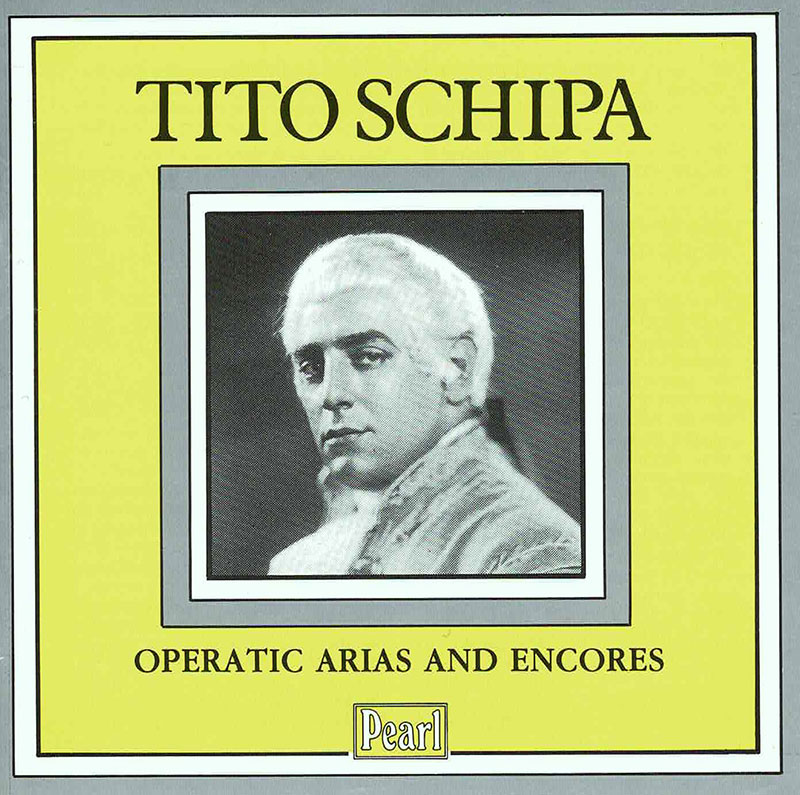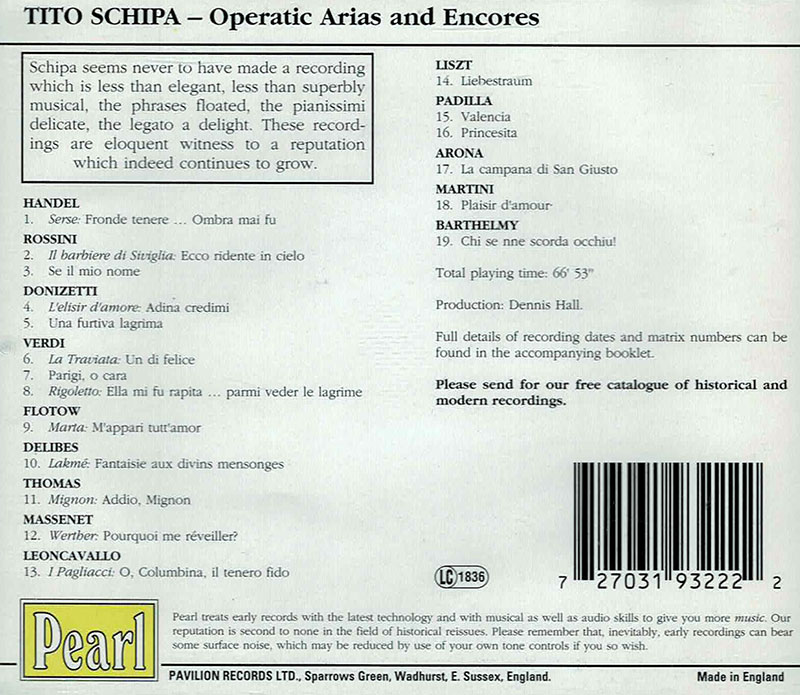Logowanie
OSTATNI taki wybór na świecie
Nancy Wilson, Peggy Lee, Bobby Darin, Julie London, Dinah Washington, Ella Fitzgerald, Lou Rawls
Diamond Voices of the Fifties - vol. 2
Tylko 1000 egzemplarzy!!!
DVORAK, BEETHOVEN, Boris Koutzen, Royal Classic Symphonica
Symfonie nr. 9 / Wellingtons Sieg Op.91
nowa seria: Nature and Music - nagranie w pełni analogowe
Petra Rosa, Eddie C.
Celebrating the art and spirit of music - vol. 3 - Pure
warm sophisticated voice...
Peggy Lee, Doris Day, Julie London, Dinah Shore, Dakota Station
Diamond Voices of the fifthies
Tylko 1000 egzemplarzy!!!
SAMPLER - STS DIGITAL, Buddy Tate, Milt Buckner, Walace Bishop
Jazz Masters - Legendary Jazz Recordings - v. 1
proszę pokazać mi drugą taką płytę na świecie!
Chesky! Niezmiennie perfekcyjny
Winylowy niezbędnik
ClearAudio
Double Matrix Professional - Sonic
najbardziej inteligentna i skuteczna pralka do płyt winylowych wszelkiego typu - całkowicie automatyczna
Tito Schipa
Tito Schipa - Operatic Arias and Encores

- 1. Serse (Xerxes), opera, HWV 40 Fronde tenere...Ombra mai fu
- Composed by George Frideric Handel
- 2. Il barbičre di Siviglia (The Barber of Seville), opera Ecco ridente in cielo
- Composed by Gioachino Rossini
- 3. Il barbičre di Siviglia (The Barber of Seville), opera Se il mio nome
- Composed by Gioachino Rossini
- 4. L'elisir d'amore, opera Adina credimi
- Composed by Gaetano Donizetti
- 5. L'elisir d'amore, opera Una furtiva lagrima
- Composed by Gaetano Donizetti
- 6. La Traviata, opera Un di felice
- Composed by Giuseppe Verdi
- 7. La Traviata, opera Parigi o cara
- Composed by Giuseppe Verdi
- 8. Rigoletto, opera Ella mi fu rapita...parmi veder le lagrime
- Composed by Giuseppe Verdi
- 9. Martha, opera M'appari tutt'amor
- Composed by Friedrich von Flotow
- 10. Lakmé, opera Fantaisie aux divins mensonges
- Composed by Leo Delibes
- 11. Mignon, opera in 3 acts Addio Mignon
- Composed by Ambroise Thomas
- 12. Werther, opera Pourquoi me réveiller?
- Composed by Jules Massenet
- 13. Pagliacci, opera O Colombina il tenero fido
- Composed by Ruggiero Leoncavallo
- 14. Liebesträume, notturno for piano in A-flat major No. 3 (O Lieb, so lang du lieben kannst), S. 541/3 (LW A103/3)
- Composed by Franz Liszt
- 15. Valencia, for voice & orchestra
- Composed by Jose Padilla
- 16. Princesita, for voice & orchestra
- Composed by Jose Padilla
- 17. La Campana di San Giusto, for voice & orchestra (& chorus ad lib)
- Composed by Columbo Arona
- 18. Plaisir d'amour, for voice & piano (or orchestra)
- Composed by Johann Paul Aegidius Martini
- 19. Chi se ne scorda cchiů! for voice & piano
- Composed by Richard Barthelemy
- Tito Schipa - tenor
TITO SCHIPA - Operatic Arias and Encores It would not be too frivolous to suggest that Tito Schipa is the ideal Italian tenor for people who do not like Italian tenors - or, at any rate, what they conceive of as being the archetypal Italian tenor. You will not in Schipa's recordings find sobs, glottal stops, swooping portamenti or excessive vibrato, nor indeed excesses in any direction, for the quintessence of his artistry is refinement and good taste. This should not however be taken to suggest that Schipa's interpretations lack warmth and emotion; it is simply that, like John McCormack, he was able to convey the full meaning of what he was singing by pure musicality, without resort to any vulgarity or 'tricks of the trade'. With McCormack also he shared an outstanding legato, the ability to float phrases apparently without effort and to achieve the most hauntingly lovely pianissimi. It has to be admitted that the voice lacks the lush latin richness of Caruso or Gigh, and the bottom end of it could perhaps be described as thin - but whilst good voices are not so uncommon, the ability to use them with the nobility and subtlety that Schipa achieved is rare indeed. Despite stiff competition from such contemporaries as Gigh, Lauri-Volpi and Martinelli, Tito Schipa enjoyed an enormous reputation, and well did he deserve it - as the recordings here reissued clearly show. Schipa was born in Lecce, Southern Italy, on 2nd January 1890, in which town he began his study of singing with Alceste Gerunda, receiving at the same time tuition in piano and composition. (Although esteemed mainly as a singer, he is remembered also for his not inconsiderable output of charming vocal pieces, many of which he recorded). He furthered his studies with Emilio Piccoli in Milan, and at the age of barely twenty was ready for his operatic debut, which took place in 1910 at the Teatro Politeama Facchinetti at Vercelli, when he sang the part of Alfredo in La Traviata. During the ensuing three years he gained broad general experience of the repertoire in various provincial Italian houses, and had by 1913 acquired such a reputation that he was invited to appear at the celebrated Teatro Colon in Buenos Aires. Rome heard him the following year (as Ernesto in Don Pasquale, a róle which he was to make very much his own) and his eventual triumphant La Scala debut took place in 1915, when he demonstrated that he could also tackle the heavier lyrical roles by singing Vladimir in Prince Igor to tremendous acclaim. He was to remain at La Scala, on and off, until 1950, and triumphed also at the Metropolitan, New York, where he was first heard in 1932. Tito Schipa continued to sing until 1962, three years before his death, thus achieving a remarkable career of nearly fifty-three years. When asked how he had managed it, he replied that, as well as taking good care of his health, he had "never attempted to compete with the orchestra for volume". Schipa's many recordings date from 1918 and bear eloquent witness to the high quality of both voice and artistry throughout his long career. Handel - Serse: Ombra mat fu Familiar to all under its more generally used title of 'Handel's Largo', this aria is an ode to a palm tree in which the singer thanks the plant for the welcome shade it provides. The opera was first produced in London in 1738. Rossini - Il barbiere di Siviglia: Ecco ridente in cielo Il barbiere di Siviglia: Se il mio nome Count Almaviva's serenade from the ever-popular `Barber of Seville' is one of the toughest test-pieces in the tenor repertoire, requiring as it does perfectly controlled legato, great vocal agility and secure intonation; Schipa does not disappoint. In Se il mio nome the disguised Almaviva, still pursuing the attractive Rosina, uses this delightful canzonetta to inform her that his name is 'Lindoro'. Donizetti - L'elisir d'amore: Adina, credimi L'elisir d'amore: Una furtiva lagrima The long-breathed legato arias that were characteristic of both Bellini and Donizetti were ideally suited to Schipa's style and the role of the peasant Nemorino in the latter composer's L'elisir d'amore was one in which he enjoyed conspicuous success. This work, which was first performed in Milan in 1832, is a comedy which centres round the love of the impecunious young peasant for an attractive and rich but frivolous girl called Adina, who herself prefers the superficial charms of a visiting infantry sergeant. The `elixir of love' (actually white wine) is purchased by the credulous Nemorino from a quack doctor and paid for by his enlistment fee into the army... Fortunately, Adina is touched by this gesture of love, the sergeant is prevailed upon to release Nemorino, and all ends happily. In Adina, credimi the young man attempts to advance his cause, and in the wellknown Una furtiva lagrima he observes with relief the tear on Adina's face which betrays that at last her love is being turned in his direction. Verdi - La Traviata: Un di felice La Traviata: Parigi, o cara Rigoletto: Ella mi fu rapita... Parmi veder le lagrime The three celebrated Verdi arias which follow, all so well suited to Schipa's lyrical style, need no introduction. In Un di felice he is joined by Amelita Galli-Curci (1882-1963), the Italian-born soprano who from the early 'twenties was the especial darling of the American public. Flotow - Marta: M'appari tutt'amor "An opera by a German composer, set in England, composed in the French style and normally sung in Italian", as one wag once described it, the Marta (1847) of Friedrich von Flotow (1812-1883) is the only one of his many operas which continues to hold the stage. A typically operatic tale of love and confused identities, il is remembered principally for The last rose of summer (later discovered to be an Irish folk song and not composed by Flotow!) and M'appari tutt'amor in which the farmer Lionel - subsequently discovered to be the rightful Earl of Derby - laments the loss of his love the servant-girl Marta, who is actually a lady of quality in disguise. Delibes - Lakme: Fantaisie aux divins mensonges Although Leo Delibes (1836-1891) is remembered today principally for his ballets, he was a prolific composer of operas. Lakme (1885) treats of inter-racial romance in the time of the British Raj. An English officer, Gerald, has stumbled by accident on a sacred Brahmin grove, where he finds a collection of jewels; in this aria, Gerald fantasises on the possible appearance of their owner. Thomas - Mignon: Addio, Mignon Ambroise Thomas (1811-1896) although a prolific composer of music for the stage is today remembered principally for only two works: Hamlet (1868) and, more especially, Mignon (1866). This latter opera recounts a classic tale of a girl who, `lost' as an infant, is adopted by gypsies. After we witness such typically operatic manifestations as jealousy, deception, attempted suicide and arson, we see Mignon eventually united not only with her poet lover but also her long-lost father in - and why not? - a spectacular Italian castle. The poet Wilhelm's touching farewell aria, Addio, Mignon, is an ideal vehicle for Schipa's magic. Massenet - Werther: Pourquoż me reveżller? Jules Massenet (1842-1912) was the foremost French opera composer of his generation. Werther was first heard in 1892, and tells the very simple story of how the heroine marries a suitable young man knowing full well that she loves somebody else. Realising that his own love for her is undying the rejected lover (Werther) shoots himself. in Pourquoż me reveżller? Werther confesses his love to his idol Charlotte: why, oh why, have you awakened these feelings in me, he asks. Leoncavallo - I Pagliacci: O, Colombina, il tenere fido This popular opera surely needs no introduction. Beppe, as `Harlequin', appears below the window of 'Colombina' and sings this dainty serenade to a guitar accompaniment; she rushes to open the door to him. Encores It is probable that Tito Schipa never made an inelegant record. Certainly, his lighter pieces have immense charm and absolutely no vulgarity. Liebestraum, an interpretation of great delicacy, is guaranteed to captivate at first hearing. There follows a set of Italian/Neapolitan songs (interrupted only by Martini's timeless Plaisir d'amour) which are infectious in their sheer joie-devivre. Notes by CHARLES HAYNES.





























